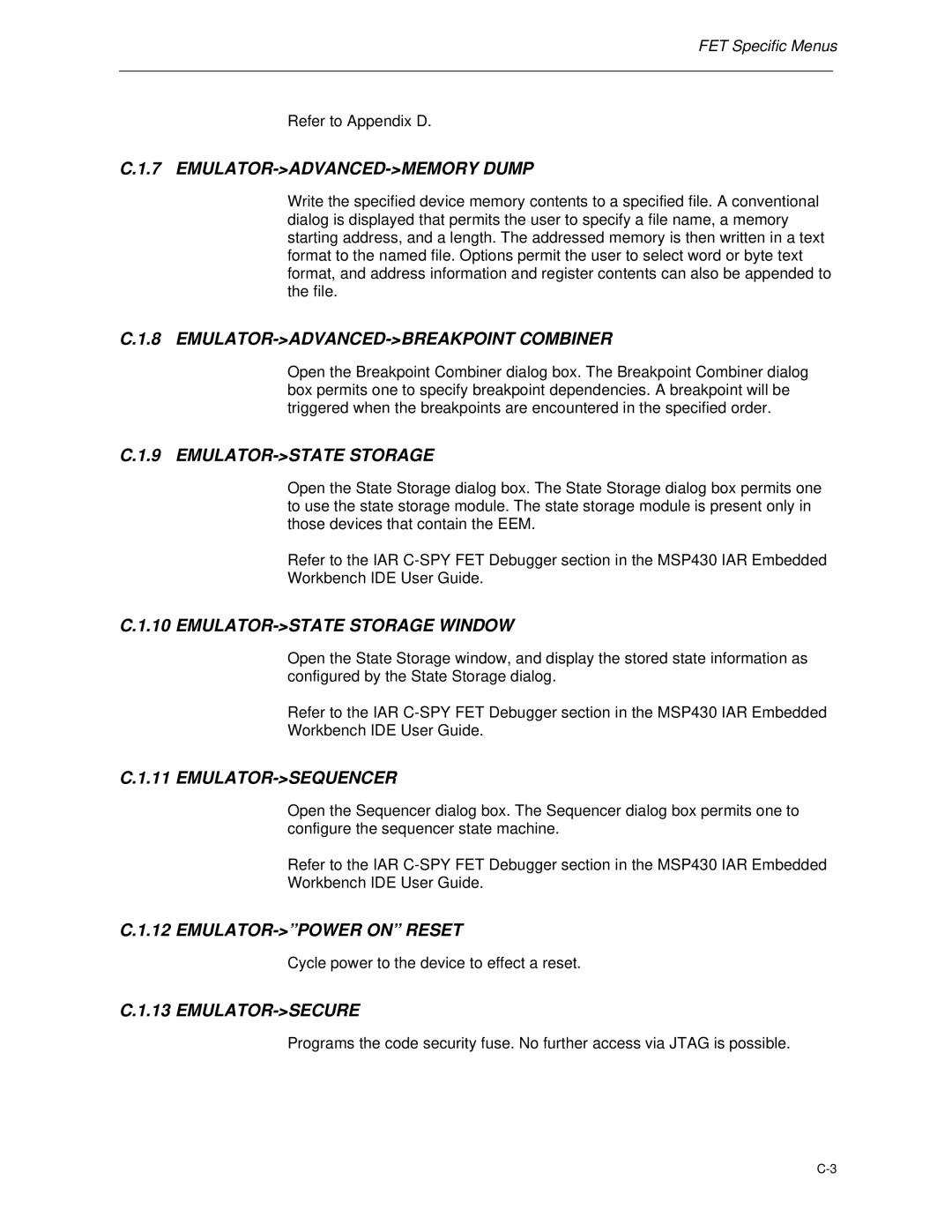FET Specific Menus
Refer to Appendix D.
C.1.7 EMULATOR->ADVANCED->MEMORY DUMP
Write the specified device memory contents to a specified file. A conventional dialog is displayed that permits the user to specify a file name, a memory starting address, and a length. The addressed memory is then written in a text format to the named file. Options permit the user to select word or byte text format, and address information and register contents can also be appended to the file.
C.1.8 EMULATOR->ADVANCED->BREAKPOINT COMBINER
Open the Breakpoint Combiner dialog box. The Breakpoint Combiner dialog box permits one to specify breakpoint dependencies. A breakpoint will be triggered when the breakpoints are encountered in the specified order.
C.1.9 EMULATOR->STATE STORAGE
Open the State Storage dialog box. The State Storage dialog box permits one to use the state storage module. The state storage module is present only in those devices that contain the EEM.
Refer to the IAR
C.1.10 EMULATOR->STATE STORAGE WINDOW
Open the State Storage window, and display the stored state information as configured by the State Storage dialog.
Refer to the IAR
C.1.11 EMULATOR->SEQUENCER
Open the Sequencer dialog box. The Sequencer dialog box permits one to configure the sequencer state machine.
Refer to the IAR
C.1.12 EMULATOR->”POWER ON” RESET
Cycle power to the device to effect a reset.
C.1.13 EMULATOR->SECURE
Programs the code security fuse. No further access via JTAG is possible.
